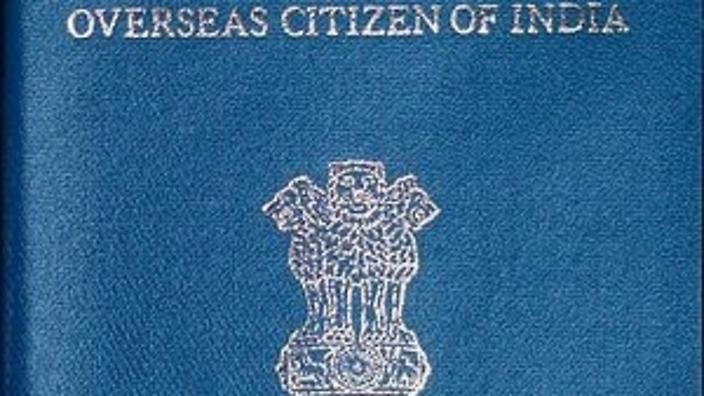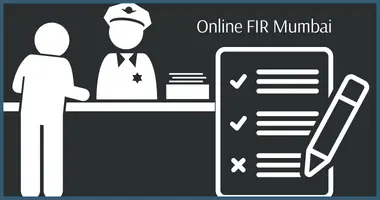The OCI is immigration status. OCI card is granted to foreign nationals of Indian origin, who fulfil certain criteria, to enable them to live and work in the Republic of India indefinitely, or for as long as they want. The OCI as Overseas Citizenship of India status was introduced by The Citizenship (Amendment) Act, 2005 in August 2005, in response to the demand for dual citizenship by individuals who have roots in India, but hold passports of countries other than India (except Bangladesh and Pakistan). This blog explains need of OCI cars, documents required for its applications and how to get OCI card.
OCI card
OCI card issued to Indian origin foreign nationals. This special status of overseas citizen of India card makes it easier for the cardholders to start their own business or find employment in India, without the hassle of applying for a work permit or going through the long drawn-out process of registering with authorized bureaucratic channels.
Previously, a separate lifelong “U” Visa sticker was pasted on OCI Cards. The visa sticker was done away with later, and the proof of lifelong visa is now just the OCI Card with a “Life Time Visa” printed on it. The OCI Card along with a passport are valid to travel documents. Airlines, Indian customs and police at airport counters ask to see your passport as well as OCI card when you travel to and from India.
OCI card is given to individuals who have migrated to other countries or those whose ancestors had roots in India, with the exceptions of Bangladesh and Pakistan.

Difference between Visa and Passport
Is a person with OCI status a citizen of India?
No, holding an OCI Card doesn’t make an individual a citizen of India when viewed through the lens of the Indian Constitution. A person with an overseas citizen of India status does not have voting rights in India, is not eligible to contest local or national elections, and is not permitted to hold any Indian constitutional office. They are not allowed to purchase agricultural land, but they may inherit property from their ancestors. OCI facilitates visa-free travel as well as rights of residency in India. It also allows the cardholder to undertake business and educational activities in the country.
Although the Indian Government doesn’t grant dual citizenship, OCI cardholders can apply for a grant of Indian citizenship if they fulfil the following criteria:
- The person should have taken up residence in India for at least twelve months before making an application for registration.
- They are permitted to apply for Indian citizenship five years after the issuance of the OCI status.
Benefits of OCI card
OCI cardholders enjoy the following privileges on par with regular citizens of India. The benefits of OCI card are listed as:
- A person with OCI status is granted a multiple-entry, multipurpose lifelong visa to visit India, eliminating the need for permits.
- OCI cardholders are exempt from registering with FRRO (Foreigners Regional Registration Officer), which is otherwise mandatory for foreign nationals who visit India on a long-term visa.
- They are also permitted to undertake educational, financial and economic pursuits in India.
- They are given equal rights as Indian citizens abroad, in matters of entry into national parks and wildlife sanctuaries, domestic airfares and inter-country adoption of Indian children.
- The rules that apply to NRIs (Non-Resident Indian) for working as doctors, advocates, chartered accountants, dentists, nurses, pharmacists, architects, etc. in India are applicable to OCI cardholders as well.
- OCI card facilitates the transaction process and reduces the expected and actual costs and risks connected with business or education activities by virtue of being excused from registrations and related formalities.
- OCI cardholders can travel at very short notice, stay as long as they like and take up assignments in India, while others could get caught up in bureaucratic delays over their work permit.
Limitations associated with OCI card
Overseas Citizens of India are forbidden from enjoying the following rights:
- OCI cardholders do not possess the right to vote in any local or national elections in India.
- Overseas Citizens of India cannot be appointed to any Indian Government services.
- An individual with OCI status is barred from contesting elections to hold the offices of President of India, Vice-President of India, Member of Lok Sabha, Member of Rajya Sabha, Member of Legislative Assembly, Member of Legislative Council, Chief Justice of India, Supreme Court Judge, or High Court Judge.
- They are required to apply for an ILP (Inner Line Permit) and/or PAP (Protected Area Permit) to gain admittance to certain areas in India like Nagaland, Mizoram and Arunachal Pradesh.
- Those visiting India for the purpose of conducting research are required to apply at the Indian Diplomatic Mission nearest to them, to obtain a No Objection Certificate or a Research Project Clearance Certificate from the Ministry of Home Affairs.
- Aadhaar cards can’t be issued to Overseas Citizens of India, making it difficult to get your hands on SIM cards for mobile phones, buying insurance policies, etc.
OCI card requirement
To register as an Overseas Citizen of India, the applicant must fulfil any one of the following criteria:
- The person should have been a citizen of India on 26 January 1950 or at any time thereafter or was eligible to become a citizen of India on 26 January 1950.
- They should have belonged to a territory that became part of India after 15 August 1947.
- A child, a grandchild, or a great-grandchild of such a citizen.
- A minor child of such persons mentioned above.
- He or she is a minor child and both the parents are citizens of India or one of the parents is a citizen of India.
- They could be a spouse of foreign origin of a citizen of India or spouse of foreign origin of an Overseas Citizen of India cardholder, registered under section 7A of the Citizenship Act, 1955. The marriage should have been registered and subsisted for a continuous period of at least 2 years before the registration of the OCI application.
- Kindly note that individuals who are citizens of Bangladesh or Pakistan, or are descendent of parents, grandparents or great grandparents who had been citizens of Bangladesh or Pakistan, are not eligible to register as Overseas Citizens of India.
Documents required to apply for OCI status
The applicant must keep the following documents handy before proceeding with the registration for overseas citizen of India card:
- Proof of Indian citizenship-
- Birth certificate, if you were born in India on or after 26th January 1950, but before 1st July 1987.
- Your birth certificate along with one of your parent’s birth certificate may suffice as Indian Citizenship proof, if you were born after 1st July 1987.
- Citizenship proofs as well as your birth certificate for both parents, if you were born in India on or after 3rd December 2004, and only if both parents are Indians, or if at least one of the parents is a citizen of India and the other one is not an illegal immigrant at the time of birth in India.
- A passport (with a validity of at least 6 months) or Voter Id Card may be considered citizenship proof in conjunction with the birth certificate.
- Evidence of self or parents or grandparents or great grandparents being holding Indian citizenship.
- Proof of relationship as a parent, grandparent or great grandparent, if their Indian origin is claimed as basis for registration as OCI cardholder.
- Proof as the spouse of foreign origin of a citizen of India or spouse of foreign origin of an OCI cardholder.
- Marriage certificate issued by a competent authority (if applicable).
- In case the parents are divorced, a court order of dissolution of marriage must be submitted, which categorically states that the legal custody of the child is with the parent .
- Applicant’s image of dimensions 51 mm X 51 mm, with a plain light coloured background, in jpg or jpeg format and maximum size of 200kb.
- Applicant’s signature image with an aspect ratio of 1:3, in jpg or jpeg format and maximum size of 200kb.
How to apply for an OCI card in India
The process for applying OCI card in India is given as:
- To start the application process, click on website
- Click on the “New OCI Registration” button.
- If you are a new applicant, select “Fresh Application”.
- Fill out your personal details such as Given Name, Date Of Birth, Country Of Birth, Current Nationality and Visible Mark, passport details and family details.
- Next, upload your photo and signature image files.
- The next page will show OCI-Registration Confirmation along with a File Reference Number, which you must jot down for future use.
- After you have completed the form, click on the “Generate Registration Form” button and take a print.
- Upload all the necessary and supporting documents one by one. Keep in mind that the maximum size of the document that is accepted for upload should not be more than 500kb
- Once the documents are uploaded successfully, click on the “Exit” button to finish the registration process.
- The OCI form and relevant documents are then sent to the Consulate or appropriate office that applies to your jurisdiction for verification, along with the OCI fee.
In case you are a PIO cardholder
- Click on the “OCI-Registration (In Lieu Of Valid PIO Card)” button on the official website or follow this link and fill in all details required.
- Furnish valid PIO-Card details in the appropriate slots.
- Complete Part-B of the registration process.
- Upload supporting documents in PDF format at the end of Part-B.
- Click on the “submit” button.
- In case you require re-issuance or issuance of duplicate OCI documents because of issuance of a new passport, change of personal particulars like name and nationality, loss of or damage to OCI registration certificate, or change in address or occupation,
- Click on the “OCI Miscellaneous Services” or follow this link https://passport.gov.in/oci/capchaActionMisc
- Enter your Passport Number, OCI Registration Number, Date of birth, Place of birth, Mother’s maiden name and hit “submit”.
- If the information entered is correct, you will be directed to the appropriate form, where you can make the desired changes.
- Click on the “submit” button.
NOTE: It is not required to send a hard copy or pay a fee in case the changes are made to address or occupation.
PIO card to OCI card
- Before the OCI came into existence, PIO card (Persons of Indian Origin Card) was a form of identification issued to a person of Indian origins, who held a passport of any country with the exception of Bangladesh, Bhutan, Pakistan, Afghanistan, Nepal, China, and Sri Lanka.
- Earlier, PIO and OCI were two independent schemes, but there was some criticism about the PIO card being less effective relative to the OCI card. To avoid the confusion caused by the administration of the two schemes, it was announced in 2014 that PIO and OCI cards would be merged.
- A gazetted order published in September 2014 mentioned that a PIO card issued to an applicant shall be valid for their lifetime, provided that the applicant has a valid passport.
- A gazetted order published in January 2015, converted all PIO holders on that date to OCI and stopped further applications of the PIO card.
- Until 30th June 2017, the conversion of PIOs to OCIs was done free of charge.
- As per the current scenario, all PIO cards are valid until 30th September 2018. After this date, the PIO card will be considered as an invalid travel document.
- Individuals looking to convert their PIO cards to OCI cards will be permitted to do so only on payment of a stipulated fee.
NOTE: Foreign nationals can travel with a valid passport and PIO card, if the date of their journey commenced on or before 30th September 2018.
Fees for OCI registration
Applications submitted in India are charged a fee of INR 15,000, whereas applications submitted from outside India are charged a fee of USD 275.
NOTE: The fee for renewal or re-issuance of OCI documents is USD 25 abroad and INR 1,400 in India.
To calculate the fee applicable to you based on your category, click on- calculator
Who should the OCI applications be made to?
The OCI application form along with the fee challan can be submitted at Foreigners Regional Registration Offices or at Indian Missions abroad.
OCI applications in India can be made to
- The FRRO (Foreigner’s Regional Registration Officer) in Goa, Hyderabad, Mumbai, Delhi, Lucknow, Kolkata, Bangalore, and Amritsar
- The OCI Cell in Foreigners Division of Ministry of Home Affairs at the following address-
Under Secretary (Foreigners Division)
Ministry of Home Affairs,
Jaisalmer House.
26 Man Singh Road,
New Delhi – 110 011
OCI card application status
To track the status of your application, take the following steps:
- Click on the “Status Enquiry” button on the official website or follow this link: Enquiry
- Furnish your Passport Number, along with any one of the two- Online Registration Number or File (Acknowledgement Number).
NOTE: To be eligible to track your OCI status, you should have submitted your application at Indian Missions.
Renewal of OCI card
Renewal of OCI is compulsory under the following circumstances only:
- OCI documents have to be re-issued and the stipulated fee has to be paid every time. A new passport is issued up to the completion of 20 years of age.
- Once an OCI holder reaches 50 years of age, they are required to get their OCI registration certificate and visa re-issued. However, if you got your first OCI card when you were already 50 years of age or older, then re-issuance of an OCI card is not mandatory.
FAQs
1) Who is authorized to issue OCI status?
OCI status is granted by the Bureau of Immigration, which comes under the ambit of Union Home Ministry of the Government of India,
2) What is the full form of OCI?
OCI -Overseas Citizenship of India
3) How long does the OCI application processing take?
An OCI card is usually issued within 6 weeks of receiving an acknowledgement from the Bureau of Immigration.
4) Are there any chances of rejection of my OCI application?
Each application is reviewed by the Ministry of Home Affairs, and it may wield its discretion to reject any application, if found unsuitable.for example, an application may be rejected for lack of adequate security clearance. An Overseas Citizenship of India card can even be cancelled or blacklisted if there is evidence that it may have been obtained by fraudulent means or by concealing any information. If an OCI cardholder is found to have disrespected the Indian Constitution in any way, the OCI is immediately cancelled.




Leave a Reply